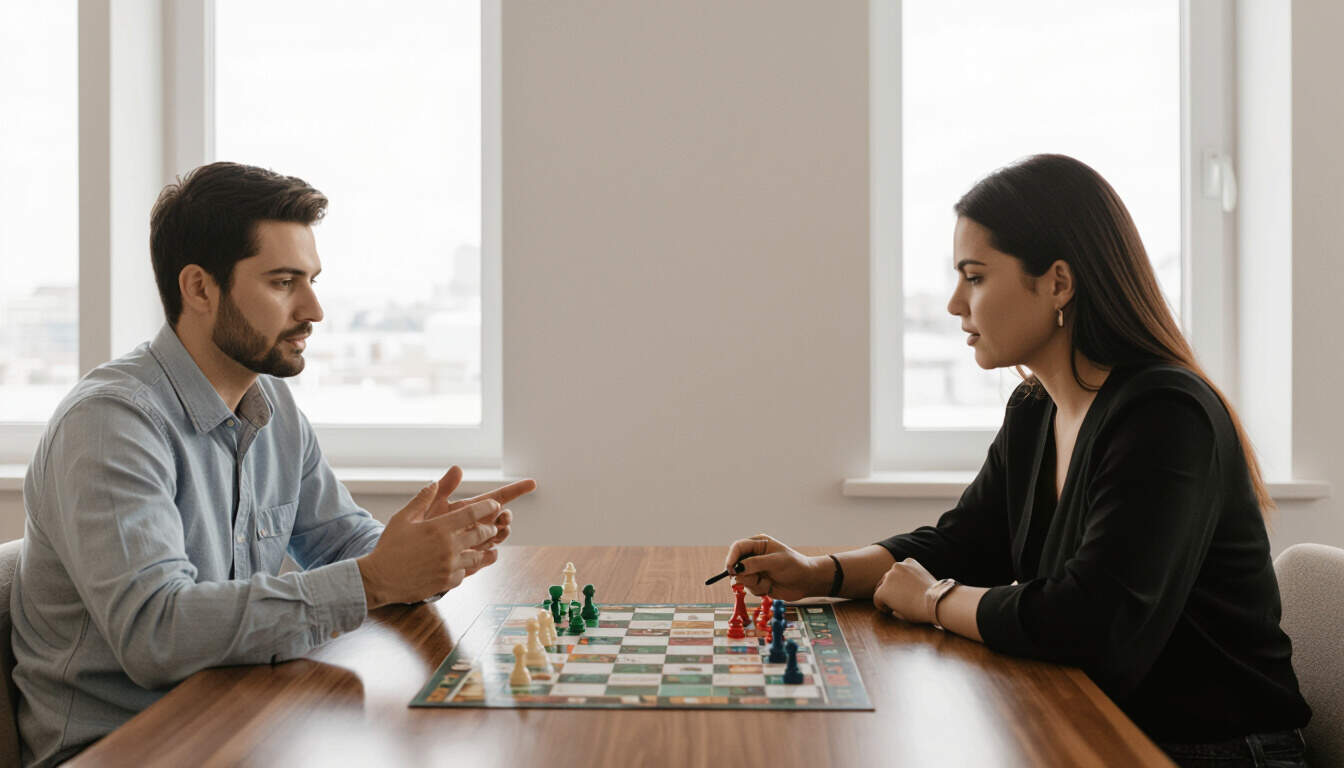Game Theory: A Key Mental Model for Decision Making
 by Verner Mayer
by Verner Mayer
Game Theory offers tools for analyzing interactions and choices in various fields. This mental model helps in psychology, business, and personal growth by examining strategies and outcomes. Learn how to apply it effectively for better decisions.

Game Theory stands as a foundational mental model that examines interactions between rational decision-makers. Its principles help in predicting behaviors and outcomes in competitive situations. Game Theory originated from mathematical economics and has since influenced multiple disciplines.
In its core, this model involves players, strategies, and payoffs. Players represent individuals or entities making choices. Strategies are the plans or actions they take, while payoffs indicate the results of those actions. For instance, in a simple scenario, two companies might decide on pricing. Each company's choice affects the other, leading to mutual outcomes.
One classic example is the Prisoner's Dilemma, which illustrates conflicts between individual and group interests. Here, two suspects are interrogated separately. If both stay silent, they get light sentences. If one confesses, that person goes free while the other faces a heavy penalty. This setup shows how self-interest can lead to suboptimal results for all involved.
Applying Game Theory extends to psychology, where it explores human behavior and cognition. It provides insights into social dynamics and cooperation. For example, studies show how people respond in trust-based scenarios, revealing patterns in decision processes.
Applications in Business Strategies
Business leaders use this mental model to anticipate competitor moves and optimize plans. In negotiations, understanding potential responses allows for better preparation. A company launching a new product might analyze market reactions using game concepts to predict sales and adjust tactics.
Consider market entry decisions. A firm weighing expansion must account for rivals' likely actions. By modeling these as a game, executives can simulate scenarios and choose the most favorable path. This approach aids in resource allocation and risk management.
Lists of strategies can simplify complex decisions:
- Identify key players and their goals.
- Map out possible actions and consequences.
- Evaluate outcomes based on assumptions of rationality.
- Adjust for real-world factors like incomplete information.
Insights for Cognitive Development
For lifelong learners, Game Theory fosters critical thinking and problem-solving skills. It encourages viewing situations from multiple perspectives, enhancing cognitive flexibility. Practicing with games sharpens analytical abilities and improves decision quality over time.
In education, incorporating this model helps students grasp interpersonal interactions. Teachers might use role-playing exercises to demonstrate concepts, making abstract ideas tangible. Over time, individuals develop a habit of strategic evaluation in daily life.
Real-world cases, such as international trade agreements, highlight its relevance. Countries negotiate terms knowing that each side's concessions affect the overall deal. This mental model thus promotes balanced and informed choices.
Practical Tips for Everyday Use
To integrate Game Theory into personal decisions, start by defining objectives and considering others' viewpoints. Break down problems into smaller components and assess potential responses. This method reduces uncertainty and leads to more effective outcomes.
In team settings, it aids in conflict resolution by clarifying motivations. By anticipating reactions, groups can collaborate more efficiently and achieve common goals. Regular reflection on past decisions using this framework refines judgment.
Ultimately, embracing this mental model equips individuals with tools for navigating choices in an interconnected world. Its principles remain timeless, offering value across various contexts and fostering continuous growth.
